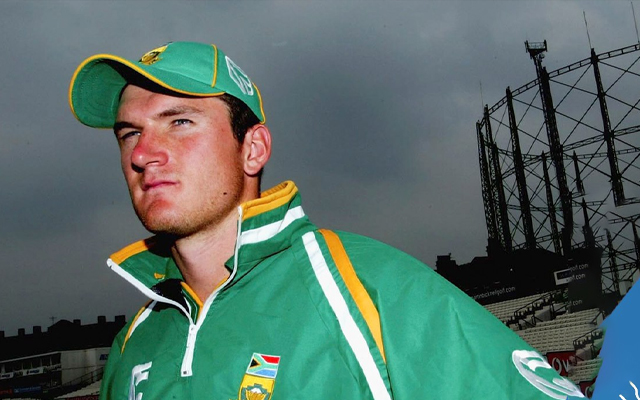Graeme Smith highlights SA20's safeguarding measures against talent drain
The league's commissioner, Graeme Smith, expressed confidence that the SA20's reliance on homegrown players will insulate it from the talent drain faced by other leagues.
4 Min Read


In a cricket landscape dominated by flashy leagues and high-profile matches, South Africa's SA20 league stands as a testament to the strength of its local talent pool.
The league's commissioner and one of the most successful Proteas captains, Graeme Smith, expressed confidence that the SA20's reliance on homegrown players will insulate it from the talent drain faced by other leagues.
"If you take a step back, we are a majority-based South African league. The majority of our players in playing XIs are South African. We are blessed to be able to attract top international talent who want to play her. When we were building SA20, there was no confidence in South Africa cricket that we were able to pull it off at this level," remarked Smith, emphasising the league's commitment to nurturing local cricketing talent, as quoted by ESPNcricinfo.
He acknowledged the challenges, such as last-minute pullouts due to international commitments, but noted the league's remarkable growth in just two years.
"But we have done that. FTPs [Future Tour Programme for international cricket] are tough. Noor Ahmad got pulled out the day before the playoffs because he was selected for Afghanistan. But if we look at what we've created in two years - it's amazing. We've gone from a place where international talent hasn't backed our league, to where they want to be a part of it," he added.
The SA20 has defied the odds and emerged as a successful franchise T20 tournament for South Africa. Smith highlighted the league's unique player composition, with only 37 out of the 99 players featuring in at least one match being foreign. This stands in stark contrast to the International League T20 (ILT20), which relies heavily on overseas players, making it more susceptible to scheduling conflicts.
"The challenge with ILT20 is they are consuming nine or ten international players per playing XI plus squad members, so it's a lot of players to keep the ship moving," he added.
While acknowledging the recent ICC cap on international players in T20 leagues, Smith dismissed the idea of imposing further restrictions on player availability.
"It is very difficult to restrict talent. The NOC discussion in itself is a challenge for the world game. It's way more complicated than me answering you now behind the scenes legally and with what goes on," he added.
Smith acknowledges a major concern for both SA20 and ILT20 – a potential clash with the Champions Trophy in mid-February to early March next year. Smith takes a pragmatic stance, emphasising the need to consider all factors and collaborate with the ICC and CSA to make informed decisions once confirmed information is available.
"We will have to consider everything," Smith said. "The Champions Trophy dates are not set in stone. We will work with the ICC and CSA and once we've got confirmed information we can make informed decisions."
This scheduling issue should never have happened: Smith
Reflecting on past scheduling challenges, Smith acknowledged the disappointment surrounding conflicts with international fixtures. The SA20 had previously accommodated South Africa's must-play World Cup Super League ODI series against England and a Test series in New Zealand. Smith lamented the scheduling issues.
"This scheduling issue should never have happened. It's disappointing. We are disappointed at what has happened. And we need to work together to make sure it does not happen again," Smith added.
Addressing broader concerns about financial disparities in cricket, Smith pointed to the challenges faced by boards like Cricket West Indies (CWI). He cited Johnny Grave, CWI's CEO, who highlighted financial losses despite an impressive Test win in Australia. Smith called for bilateral discussions to address revenue distribution issues, echoing recent recommendations by the MCC World Cricket Committee for a more equitable model.
"The challenges are much deeper than this scheduling issue. We heard (CWI CEO) Johnny Grave speak after an incredible Test win (in Australia) and they lost over a million dollars on that trip," Smith added.
"These discussions need to be happen at bilateral level. You only earn money when you are hosting tours. India plays more cricket than anybody else but with touring, a lot of other teams earn good revenue. But outside the top three - how does an SA or a WI keep all three formats strong?" he concluded.
Download Our App